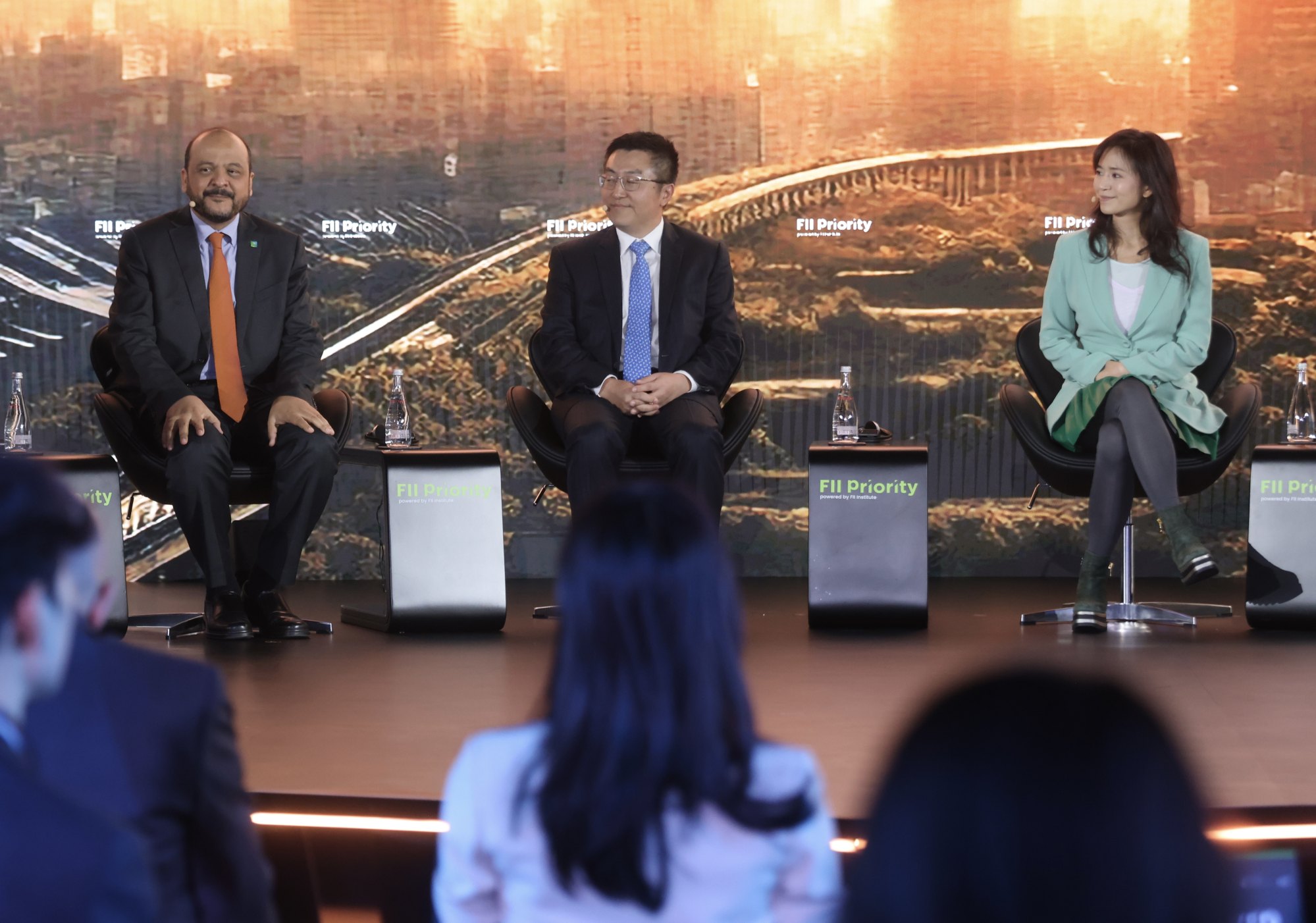“Sustainability is the defining challenge in our century, but also the biggest trillion-dollar opportunity,” Poman Lo, founding managing partner of sustainable technology fund AlphaTrio Capital, said at the FII Priority event on Thursday. “The only way we can drive this transition is by leveraging technology, which … can turn [climate] risks into opportunities.
“We need a spectrum of capital to address all the needs, ranging from green bonds to green-tech investing to blended-finance projects, [as well as] projects that need philanthropy.”
With almost 100 countries and 80 per cent of the world’s largest companies having made climate pledges, huge demand for climate technology will create “the next wave of unicorns” with the potential to solve the world’s “existential challenges”, she said. Unicorns are start-ups valued at more than US$1 billion.
Governments play a key role in funding research and development for technology that mitigates climate change and helps nations become more resilient to its impact, panellists said, while subsidies and policies are needed to drive consumers to pivot towards more sustainable products.
Private funding must come from venture-capital providers and large corporations – including established fossil-fuel players – to nurture start-ups and accelerate the commercialisation process, they said.

“The government’s support at a critical juncture is important to encourage transition,” he said. “It also needs to play a role in making sure there is sufficient infrastructure, [such as] EV recharging stations, by building where the private networks do not find it economical to cover.”
Establishing a regulatory framework for autonomous driving that allows new technology and more sustainable driving behaviour to gain ground is also important for reducing greenhouse-gas emissions in the transport sector, he added.
Coming up with a feasible technical solution only solves part of the problem for green-tech businesses, he said, since the bigger challenge lies in bringing it to market.
“Markets are not designed to pay a higher price for energy produced from existing technologies,” he said. “That is why we really need to work with governments to make these markets happen.” A boom in new-energy ventures in the early 2000s failed due to a lack of scale, he added.
These Greater Bay Area start-ups are making decarbonisation pay off
These Greater Bay Area start-ups are making decarbonisation pay off
“It is far too large of an investment for a start-up to be able to scale up [new] energy technologies,” he said. “That is why we need strategic investments with the large energy players [who] have to be part of the solution. Otherwise these new technologies will not go very far.”
More than 1,000 policymakers, business leaders and investors have gathered for the two-day conference in Hong Kong to discuss the mega trends that will impact the planet’s future. FII Institute is a think tank backed by Saudi Arabia’s Public Investment Fund.
Organised in partnership with the city’s government and bourse operator Hong Kong Exchanges and Clearing, the event is being held in Asia for the first time. It comes as Saudi Arabia and China forge closer ties that are likely to shape global transformation.


